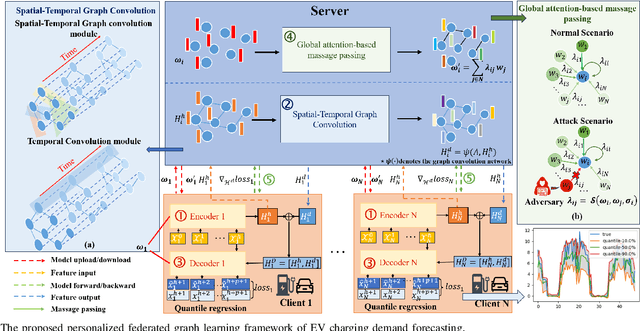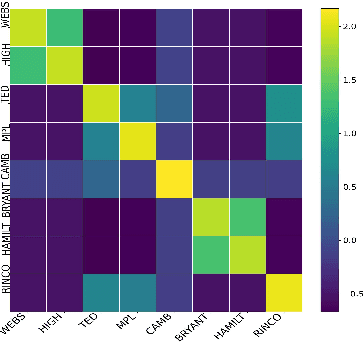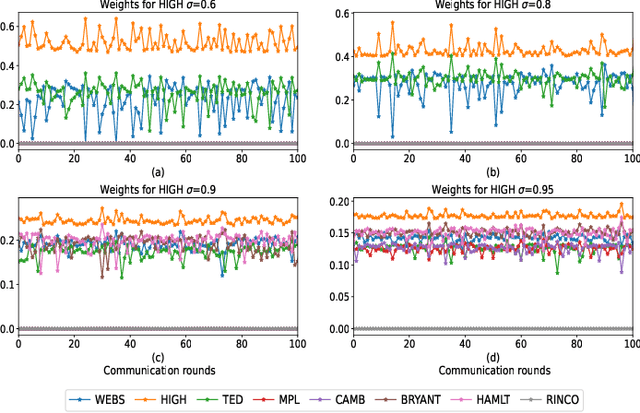Federated Graph Learning for EV Charging Demand Forecasting with Personalization Against Cyberattacks
Paper and Code
Apr 30, 2024



Mitigating cybersecurity risk in electric vehicle (EV) charging demand forecasting plays a crucial role in the safe operation of collective EV chargings, the stability of the power grid, and the cost-effective infrastructure expansion. However, existing methods either suffer from the data privacy issue and the susceptibility to cyberattacks or fail to consider the spatial correlation among different stations. To address these challenges, a federated graph learning approach involving multiple charging stations is proposed to collaboratively train a more generalized deep learning model for demand forecasting while capturing spatial correlations among various stations and enhancing robustness against potential attacks. Firstly, for better model performance, a Graph Neural Network (GNN) model is leveraged to characterize the geographic correlation among different charging stations in a federated manner. Secondly, to ensure robustness and deal with the data heterogeneity in a federated setting, a message passing that utilizes a global attention mechanism to aggregate personalized models for each client is proposed. Thirdly, by concerning cyberattacks, a special credit-based function is designed to mitigate potential threats from malicious clients or unwanted attacks. Extensive experiments on a public EV charging dataset are conducted using various deep learning techniques and federated learning methods to demonstrate the prediction accuracy and robustness of the proposed approach.
 Add to Chrome
Add to Chrome Add to Firefox
Add to Firefox Add to Edge
Add to Edge